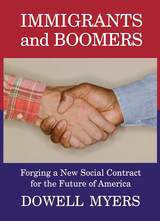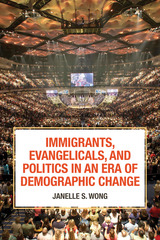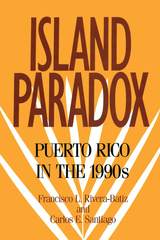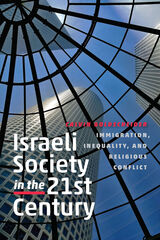108 books about Population and 5
start with I
108 books about Population and 5
108 books about Population
5 start with I start with I
5 start with I start with I

Immigrants and Boomers
Forging a New Social Contract for the Future of America
Dowell Myers
Russell Sage Foundation, 2007
"This story of hope for both immigrants and native-born Americans is a well-researched, insightful, and illuminating study that provides compelling evidence to support a policy of homegrown human investment as a new priority. A timely, valuable addition to demographic and immigration studies. Highly recommended." —Choice Virtually unnoticed in the contentious national debate over immigration is the significant demographic change about to occur as the first wave of the Baby Boom generation retires, slowly draining the workforce and straining the federal budget to the breaking point. In this forward-looking new book, noted demographer Dowell Myers proposes a new way of thinking about the influx of immigrants and the impending retirement of the Baby Boomers. Myers argues that each of these two powerful demographic shifts may hold the keys to resolving the problems presented by the other. Immigrants and Boomers looks to California as a bellwether state—where whites are no longer a majority of the population and represent just a third of residents under age twenty—to afford us a glimpse into the future impact of immigration on the rest of the nation. Myers opens with an examination of the roots of voter resistance to providing social services for immigrants. Drawing on detailed census data, Myers demonstrates that long-established immigrants have been far more successful than the public believes. Among the Latinos who make up the bulk of California's immigrant population, those who have lived in California for over a decade show high levels of social mobility and use of English, and 50 percent of Latino immigrants become homeowners after twenty years. The impressive progress made by immigrant families suggests they have the potential to pick up the slack from aging boomers over the next two decades. The mass retirement of the boomers will leave critical shortages in the educated workforce, while shrinking ranks of middle-class tax payers and driving up entitlement expenditures. In addition, as retirees sell off their housing assets, the prospect of a generational collapse in housing prices looms. Myers suggests that it is in the boomers' best interest to invest in the education and integration of immigrants and their children today in order to bolster the ranks of workers, taxpayers, and homeowners America they will depend on ten and twenty years from now. In this compelling, optimistic book, Myers calls for a new social contract between the older and younger generations, based on their mutual interests and the moral responsibility of each generation to provide for children and the elderly. Combining a rich scholarly perspective with keen insight into contemporary political dilemmas, Immigrants and Boomers creates a new framework for understanding the demographic challenges facing America and forging a national consensus to address them.
[more]

Immigrants, Evangelicals, and Politics in an Era of Demographic Change
Janelle S. Wong
Russell Sage Foundation, 2018
As immigration from Asia and Latin America reshapes the demographic composition of the U.S., some analysts have anticipated the decline of conservative white evangelicals’ influence in politics. Yet, Donald Trump captured a larger share of the white evangelical vote in the 2016 election than any candidate in the previous four presidential elections. Why has the political clout of white evangelicals persisted at a time of increased racial and ethnic diversity? In Immigrants, Evangelicals, and Politics in an Era of Demographic Change, political scientist Janelle Wong examines a new generation of Asian American and Latino evangelicals and offers an account of why demographic change has not contributed to a political realignment.
Asian Americans and Latinos currently constitute 13 percent of evangelicals, and their churches are among the largest, fastest growing organizations in their communities. While evangelical identity is associated with conservative politics, Wong draws from national surveys and interviews to show that non-white evangelicals express political attitudes that are significantly less conservative than those of their white counterparts. Black, Asian American, and Latino evangelicals are much more likely to support policies such as expanded immigration rights, increased taxation of the wealthy, and government interventions to slow climate change. As Wong argues, non-white evangelicals’ experiences as members of racial or ethnic minority groups often lead them to adopt more progressive political views compared to their white counterparts.
However, despite their growth in numbers, non-white evangelicals—particularly Asian Americans and Latinos—are concentrated outside of swing states, have lower levels of political participation than white evangelicals, and are less likely to be targeted by political campaigns. As a result, white evangelicals dominate the evangelical policy agenda and are overrepresented at the polls. Also, many white evangelicals have adopted even more conservative political views in response to rapid demographic change, perceiving, for example, that discrimination against Christians now rivals discrimination against racial and ethnic minorities.
Wong demonstrates that immigrant evangelicals are neither “natural” Republicans nor “natural” Democrats. By examining the changing demographics of the evangelical movement, Immigrants, Evangelicals, and Politics in an Era of Demographic Change sheds light on an understudied constituency that has yet to find its political home.
Asian Americans and Latinos currently constitute 13 percent of evangelicals, and their churches are among the largest, fastest growing organizations in their communities. While evangelical identity is associated with conservative politics, Wong draws from national surveys and interviews to show that non-white evangelicals express political attitudes that are significantly less conservative than those of their white counterparts. Black, Asian American, and Latino evangelicals are much more likely to support policies such as expanded immigration rights, increased taxation of the wealthy, and government interventions to slow climate change. As Wong argues, non-white evangelicals’ experiences as members of racial or ethnic minority groups often lead them to adopt more progressive political views compared to their white counterparts.
However, despite their growth in numbers, non-white evangelicals—particularly Asian Americans and Latinos—are concentrated outside of swing states, have lower levels of political participation than white evangelicals, and are less likely to be targeted by political campaigns. As a result, white evangelicals dominate the evangelical policy agenda and are overrepresented at the polls. Also, many white evangelicals have adopted even more conservative political views in response to rapid demographic change, perceiving, for example, that discrimination against Christians now rivals discrimination against racial and ethnic minorities.
Wong demonstrates that immigrant evangelicals are neither “natural” Republicans nor “natural” Democrats. By examining the changing demographics of the evangelical movement, Immigrants, Evangelicals, and Politics in an Era of Demographic Change sheds light on an understudied constituency that has yet to find its political home.
[more]

Increase And Multiply
Governing Cultural Reproduction In Early Modern England
David Glimp
University of Minnesota Press, 2003
A wide-ranging study of the ideology of population control in early modern England.
Across the sixteenth and seventeenth centuries, a growing notion of the value of a large populace created a sense of urgency about reproduction; accordingly, a wide array of English writers of the time voiced the need not merely to add more people but also to ensure that England had an abundance of the right kinds of people. This need, in turn, called for a variety of institutions to train-and thus make, through a kind of nonbiological procreation-pious, enterprising, and dutiful subjects. In Increase and Multiply, David Glimp examines previously unexplored links between this emergent demographic mentality and Renaissance literature.
Glimp's analysis centers on humanist pedagogy as a mechanism for creating people capable of governing both themselves and others. Acknowledging the ways in which authors such as Sidney, Shakespeare, and Milton advance their own work by appealing to this vision, Glimp argues that their texts allow us to read the scope and limits of this generative ideal, its capacity to reinforce order and to become excessive and destabilizing. His work provides unprecedented insight into the role of fantasies of nonbiological reproduction in early modern political theory, government practice, and literary production.
David Glimp is assistant professor of English at the University of Miami in Coral Gables, Florida.
[more]

Island Paradox
Puerto Rico in the 1990s
Francisco Rivera-Batiz
Russell Sage Foundation, 1996
"One of the year's best books on Puerto Rico."—El Nuevo Dia, San Juan "[The authors] are highly regarded labor economists who have written extensively and intelligently in the past, and again in this volume, on Puerto Rican migration and labor markets... There isabundant statistical data and careful analysis, some of which challenges the conventional wisdom. Highly recommended." —Choice Island Paradox is the first comprehensive, census-based portrait of social and economic life in Puerto Rico. During its nearly fiftyyears as a U.S. commonwealth, the relationship between Puerto Rico's small, developing economy and the vastly larger, more industrialized United States has triggered profound changes in the island's industry and labor force. Puerto Rico has been deeply affected by the constant flow of its people to and from the mainland, and by the influx of immigrant workers from other nations. Distinguished economists Francisco Rivera-Batiz and Carlos Santiago provide the latest data on the socioeconomic status of Puerto Rico today, and examine current conditions within the context of the major trends of the past two decades. Island Paradox describes many improvements in Puerto Rico's standard of living, including rising per-capita income, longer life expectancies, greater educational attainment, and increased job prospects for women. But it also discusses the devastating surge in unemployment. Rapid urbanization and a vanishing agricultural sector have led to severe inequality, as family income has become increasingly dependent on education and geographic location. Although Puerto Rico's close ties to the United States were the major source of the island's economic growth prior to 1970, they have also been at the root of recent hardships. Puerto Rico's trade andbusiness transactions remain predominantly with the United States, but changes in federal tax, social, and budgetary policies, along with international agreements such as NAFTA, now threaten to alter the economic ties between the island and the mainland. Island Paradox reveals the social and family changes that have occurred among Puerto Ricans on the island and the mainland. The significant decline in the island's population growth is traced in part to women's increased pursuit of educational and employment opportunities before marrying. More children are being raised by singleparents, but this stems from a higher divorce rate and not a rise in teenage pregnancy. The widespread circular migration to and from the United States has had strong repercussions for the island's labor markets and social balance, leading to concerns about an island brain drain. The Puerto Rican population in the United States hasbecome increasingly diverse, less regionally concentrated and not, as some have claimed, in danger of becoming an underclass. Within a single generation Puerto Rico has experienced social and economic shifts of an unprecedented magnitude. Island Paradox charts Puerto Rico's economic fortunes, summarizes the major demographic trends, and identifies the issues that will have the strongest bearings on Puerto Rico's prospects for a successful future. A Volume in the Russell Sage Foundation Census Series
[more]

Israeli Society in the Twenty-First Century
Immigration, Inequality, and Religious Conflict
Calvin Goldscheider
Brandeis University Press, 2015
This volume illuminates changes in Israeli society over the past generation. Goldscheider identifies three key social changes that have led to the transformation of Israeli society in the twenty-first century: the massive immigration of Jews from the former Soviet Union, the economic shift to a high-tech economy, and the growth of socioeconomic inequalities inside Israel. To deepen his analysis of these developments, Goldscheider focuses on ethnicity, religion, and gender, including the growth of ethnic pluralism in Israel, the strengthening of the Ultra-Orthodox community, the changing nature of religious Zionism and secularism, shifts in family patterns, and new issues and challenges between Palestinians and Arab Israelis given the stalemate in the peace process and the expansions of Jewish settlements. Combining demography and social structural analysis, the author draws on the most recent data available from the Israeli Central Bureau of Statistics and other sources to offer scholars and students an innovative guide to thinking about the Israel of the future. This book will be of interest to scholars and students of contemporary Israel, the Middle East, sociology, demography and economic development, as well as policy specialists in these fields. It will serve as a textbook for courses in Israeli history and in the modern Middle East.
[more]
READERS
Browse our collection.
PUBLISHERS
See BiblioVault's publisher services.
STUDENT SERVICES
Files for college accessibility offices.
UChicago Accessibility Resources
home | accessibility | search | about | contact us
BiblioVault ® 2001 - 2024
The University of Chicago Press









